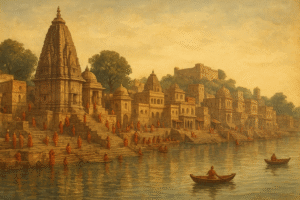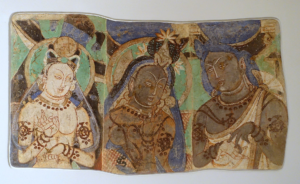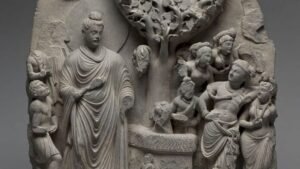
Destruction of Nalanda University
The 12th and 13th centuries were times of immense upheaval in the Indian subcontinent, defined by foreign invasions that sought not only to conquer but also to erase the indigenous cultural and intellectual fabric. One of the most devastating events of this period was the ruthless destruction of Nalanda University by Bakhtiyar Khilji, a foreign invader whose actions led to an irreparable loss for humanity. The barbarity of his conquest was not merely an act of war but a calculated assault on India’s ancient civilization, erasing millennia of accumulated knowledge and wisdom.
Who Was Bakhtiyar Khilji?
Ikhtiyar al-Din Muhammad Bakhtiyar Khalji, better known as Bakhtiyar Khilji, was a military commander of Turkish origin, serving under the Ghurid dynasty. Hailing from the Khalji tribe, he rose through the ranks due to his ruthless military tactics and unrelenting ambition. In the late 12th century, he was appointed governor of Bengal after successfully capturing its territories. His rise to power was marked by destruction, plunder, and the obliteration of Indian cultural and religious institutions. Unlike true conquerors who assimilated and respected the lands they occupied, Khilji operated with a scorched-earth policy, aimed at erasing India’s intellectual and religious history.

The Brutal Conquest of Bihar
After securing Bengal, Khilji turned his attention to Bihar, a land of immense prosperity and scholarly significance. It was during this period that he launched a catastrophic raid on Nalanda, one of the greatest centers of learning in the ancient world. His conquest of present day Bihar was not motivated solely by political gains but by an intrinsic hostility toward Indian civilization and its scholarly traditions. His campaign left a trail of bloodshed, with countless civilians and scholars massacred under his orders.

Nalanda: The Crown Jewel of Ancient Indian Learning
Nalanda University, established in the 5th century CE under the patronage of the Gupta Empire, was a beacon of intellectual brilliance and one of the most revered institutions in the world. It flourished as a hub for Buddhist philosophy, mathematics, astronomy, medicine, and various other sciences. Scholars from China, Korea, Japan, Tibet, and Central Asia traveled thousands of miles to study in its halls. The university housed an enormous library, often described as the most extensive collection of knowledge in existence at the time.
Xuanzang, the famous Chinese traveler and scholar, documented Nalanda’s grandeur in his writings, stating that over 10,000 monks and scholars resided within its vast compounds. Another Chinese pilgrim, Yijing, also praised the institution’s advanced curriculum and the disciplined lifestyle of its students. This was not just a university; it was the heart of India’s intellectual and philosophical legacy.
The Catastrophic Destruction of Nalanda
In 1193 CE, Bakhtiyar Khilji’s forces descended upon Nalanda with brutal efficiency. The reasons for his attack remain debated, but it is widely believed that his fundamentalist zeal and hatred for Indian culture fueled his rampage. His army slaughtered monks, students, and scholars mercilessly, leaving behind a trail of devastation. The vast library, known as Dharma Gunj (Mountain of Knowledge), was set ablaze. The fire is said to have raged for several months, consuming manuscripts containing centuries of knowledge in various fields of study.
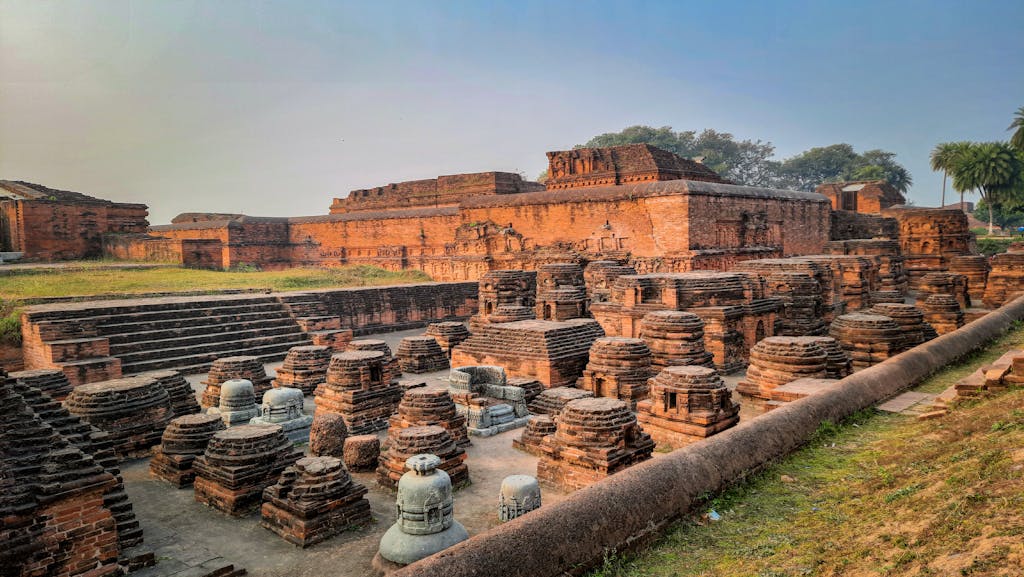
Minhaj-i-Siraj, the Persian chronicler who authored Tabaqat-i Nasiri, explicitly records Khilji’s destruction of Bihar and its learning centers, describing the massacre and plundering that followed. Other medieval sources corroborate these accounts, illustrating how the attack on Nalanda was not merely a military conquest but a deliberate effort to erase India’s rich intellectual traditions.
With the loss of Nalanda, countless generations were deprived of invaluable knowledge, and the ripple effects of this destruction were felt for centuries. Many surviving Buddhist scholars were forced to flee to Nepal, Tibet, and China, carrying whatever fragments of learning they could salvage.
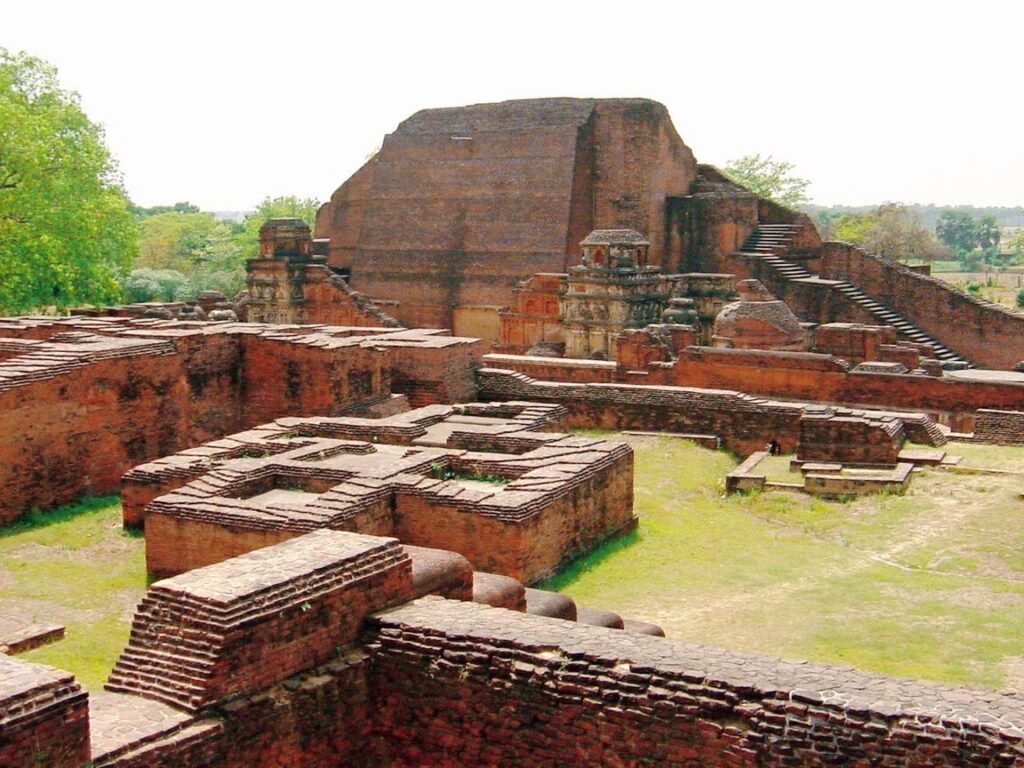
The Aftermath: A Blow to Indian Civilization
The Decline of Buddhism in India
Nalanda was the epicenter of Buddhist scholarship, and its destruction marked the beginning of Buddhism’s decline in India. With no central institution left to nurture the faith, Buddhist traditions weakened, and monks sought refuge in foreign lands. This tragedy accelerated the transformation of India’s religious landscape, with many remaining Buddhists either converting to other faiths or migrating.
The Intellectual Vacuum
The annihilation of Nalanda left a gaping hole in India’s intellectual history. Had this repository of knowledge survived, it could have continued to contribute to global scholarship. The loss was not only India’s but the world’s, as thousands of years of accumulated knowledge in medicine, astronomy, and literature perished in the flames of conquest.
The Cultural Impact
Khilji’s barbarism was not an isolated event; it was part of a larger pattern of cultural destruction carried out by foreign invaders who sought to dismantle India’s rich traditions. This invasion and others like it severed the continuity of Indian thought and education, forcing future generations to rebuild from ruins. The attack on Nalanda was a cultural genocide, aimed at ensuring that India’s indigenous traditions would be irreparably damaged.
Legacy and Reflection
Bakhtiyar Khilji remains a reviled figure in Indian history, his name synonymous with destruction and mindless brutality. His actions were not merely those of a conqueror but of a barbarian whose aim was to dismantle an advanced civilization that had flourished for centuries. Nalanda’s ruins stand today as a reminder of this horrific chapter in history, symbolizing both the resilience of Indian culture and the dangers posed by cultural erasure.
The tragedy of Nalanda serves as a cautionary tale: knowledge and heritage must be protected at all costs. The loss suffered at the hands of Bakhtiyar Khilji underscores the importance of preserving intellectual institutions, ensuring that such acts of cultural and scholarly devastation never happen again.
In an era where India is reclaiming its cultural and historical identity, remembering Nalanda’s destruction is crucial. The world must recognize the true magnitude of this loss, not as a mere historical event but as a calculated assault on one of the greatest intellectual traditions in human history.




